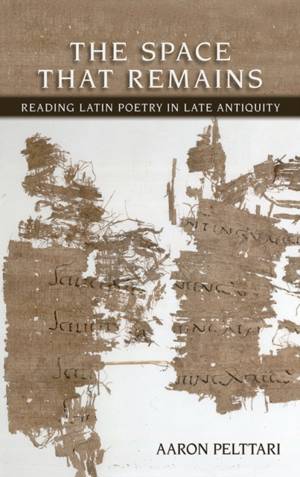
- Retrait gratuit dans votre magasin Club
- 7.000.000 titres dans notre catalogue
- Payer en toute sécurité
- Toujours un magasin près de chez vous
- Retrait gratuit dans votre magasin Club
- 7.000.0000 titres dans notre catalogue
- Payer en toute sécurité
- Toujours un magasin près de chez vous
Description
In The Space That Remains, Aaron Pelttari offers the first systematic study of the major fourth-century poets since Michael Robert's foundational The Jeweled Style. It is the first book to give equal attention to both Christian and Pagan poetry and the first to take seriously the issue of readership.
As Pelttari shows, the period marked a turn towards forms of writing that privilege the reader's active involvement in shaping the meaning of the text. In the poetry of Ausonius, Claudian, and Prudentius we can see the increasing importance of distinctions between old and new, ancient and modern, forgotten and remembered. The strange traditionalism and verbalism of the day often concealed a desire for immediacy and presence. We can see these changes most clearly in the expectations placed upon readers. The space that remains is the space that the reader comes to inhabit, as would increasingly become the case in the literature of the Latin Middle Ages.
Spécifications
Parties prenantes
- Auteur(s) :
- Editeur:
Contenu
- Nombre de pages :
- 210
- Langue:
- Anglais
- Collection :
- Tome:
- n° 64
Caractéristiques
- EAN:
- 9780801452765
- Date de parution :
- 08-09-14
- Format:
- Livre relié
- Format numérique:
- Ongenaaid / garenloos gebonden
- Dimensions :
- 157 mm x 236 mm
- Poids :
- 430 g

Les avis
Nous publions uniquement les avis qui respectent les conditions requises. Consultez nos conditions pour les avis.






